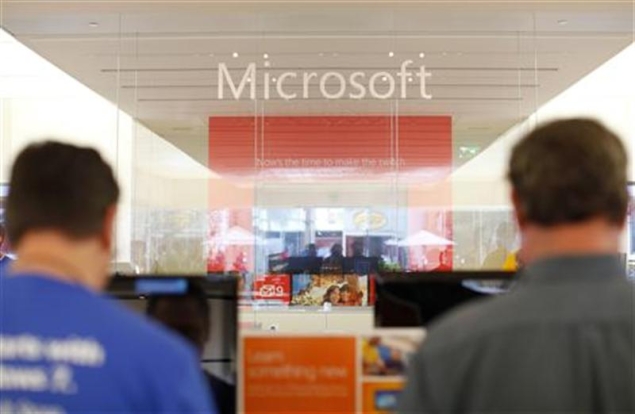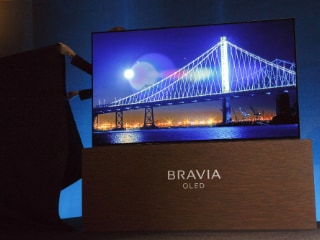- Home
- Mobiles
- Mobiles News
- Delay in Microsoft deal may lead to more Nokia patent concessions
Delay in Microsoft deal may lead to more Nokia patent concessions

After selling its loss-making handset business, Nokia - which expected the deal to close this month - will derive more than 90 percent of sales from its telecom network unit, but its patent portfolio is seen as a promising source of future growth.
As a phone maker, Nokia has paid rivals for the use of their licences as well as charging for its own. A newly restructured Nokia would be freer to push up those fees, analysts say.
Expected future revenue from patents make up as much as half Nokia's roughly 20-billion-euro market capitalisation, they say.
Google and Samsung Electronics have asked Chinese regulators to ensure the 5.4 billion euro deal between Microsoft and Nokia would not lead to higher licensing fees, according to media reports.
"(The delay) is a bad sign. They have been discussing with authorities for quite a while already, and they still need more time," Nordea Markets analyst Sami Sarkamies said.
"The biggest risk is in the upside of their patents. It looks like Nokia will have to make bigger concessions to push the deal through," he said.
Nokia shares fell 0.7 percent to 5.24 euros by 1215 GMT.
The Finnish firm said both companies remain committed to the deal, and Microsoft said it expects it to close next month.
"We are nearing the final stages of our global regulatory approval process," Brad Smith, Microsoft's general counsel, said on the company's website. "Currently we are awaiting approval confirmation in the final markets."
Nokia also reiterated that its tax disputes in India would not have an impact on the deal schedule.
Indian authorities hit the company with a new $414 million tax claim last week, following a Supreme Court decision ordering Nokia to give a $571 million guarantee before transferring its Chennai factory to Microsoft.
Pohjola Markets analyst Hannu Rauhala said Nokia and Microsoft had several options on how to deal with the tax issues while the antitrust problem was essentially out of their hands.
"There is always the risk of further postponements (in deal closure). Based on the information they have given today, it can't be ruled out," he said.
The time needed to close the deal, announced last September, is not exceptional for Microsoft, which took five months to complete its purchase of online chat company Skype in 2011. Nokia and Microsoft have already received approvals from the European Commission and the U.S. Department of Justice.
Rauhala said that delays to the deal could also push forward Nokia's strategy update. Nokia had been expected to name a new chief executive and outline its new strategy after the deal.
Along with its network unit and patents, future Nokia also includes its navigation software business HERE.© Thomson Reuters 2014
Catch the latest from the Consumer Electronics Show on Gadgets 360, at our CES 2026 hub.
Related Stories
- Samsung Galaxy Unpacked 2025
- ChatGPT
- Redmi Note 14 Pro+
- iPhone 16
- Apple Vision Pro
- Oneplus 12
- OnePlus Nord CE 3 Lite 5G
- iPhone 13
- Xiaomi 14 Pro
- Oppo Find N3
- Tecno Spark Go (2023)
- Realme V30
- Best Phones Under 25000
- Samsung Galaxy S24 Series
- Cryptocurrency
- iQoo 12
- Samsung Galaxy S24 Ultra
- Giottus
- Samsung Galaxy Z Flip 5
- Apple 'Scary Fast'
- Housefull 5
- GoPro Hero 12 Black Review
- Invincible Season 2
- JioGlass
- HD Ready TV
- Laptop Under 50000
- Smartwatch Under 10000
- Latest Mobile Phones
- Compare Phones
- Red Magic 11 Air
- Honor Magic 8 RSR Porsche Design
- Honor Magic 8 Pro Air
- Infinix Note Edge
- Lava Blaze Duo 3
- Tecno Spark Go 3
- iQOO Z11 Turbo
- OPPO A6c
- Lenovo Yoga Slim 7x (2025)
- Lenovo Yoga Slim 7a
- Lenovo Idea Tab Plus
- Realme Pad 3
- Moto Watch
- Garmin Quatix 8 Pro
- Haier H5E Series
- Acerpure Nitro Z Series 100-inch QLED TV
- Asus ROG Ally
- Nintendo Switch Lite
- Haier 1.6 Ton 5 Star Inverter Split AC (HSU19G-MZAID5BN-INV)
- Haier 1.6 Ton 5 Star Inverter Split AC (HSU19G-MZAIM5BN-INV)







![[Sponsored] Haier C90 OLED TV | Dolby Vision IQ, 144Hz OLED and Google TV in Action](https://www.gadgets360.com/static/mobile/images/spacer.png)









